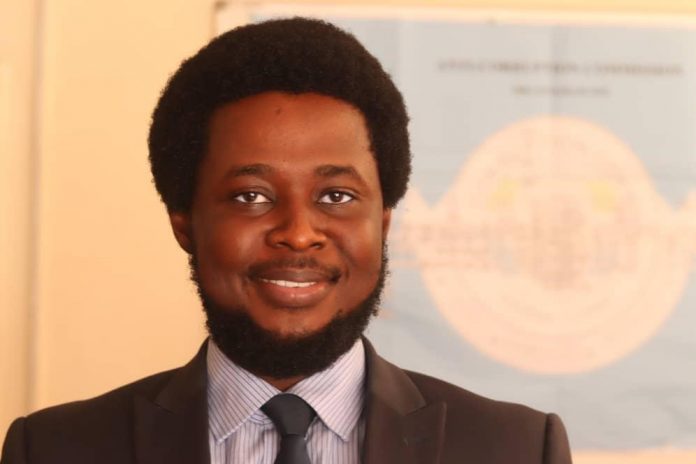By Foday Moriba Conteh
The Anti-Corruption Commission (ACC),on the 20th June 2020, reminded members of the public that sometime in May 2020, the institution commenced investigation into allegations relating to misappropriation of public funds by officials of the National Commission for Social Action (NaCSA) and a staff of the Anti-Corruption Commission (ACC), which came about from a video footage screened by the Africa Young Voices (AYV) Television on 12th May, 2020, in which, supposed beneficiaries expressed their frustrations over the payment of funds provided by the Government of Sierra Leone, to vulnerable people in the Bombali community, to cushion the effects of the three day lockdown, at 10 Arabic College Road, Makeni.
According to the ACC, based on the above, the matter was carefully and promptly investigated adding how findings revealed that the list used to pay beneficiaries emanated from the various partners working with NaCSA and was not generated by NaCSA itself.
It was further revealed that payment of beneficiaries commenced on Saturday 2nd May 2020 at the Makeni City Council and Two hundred and Seventy-Six people (276) were paid on that day.
The ACC furthered that on Monday 4th May 2020, payment recommenced and payment teams were divided into two groups to expedite the payments to beneficiaries.
Team One was headed by Brian Smart-Kanu and they paid beneficiaries at the Makeni City Council and Teko Veterinary.
The other team was headed by Sheik Ahmed Bobor-Kamara and Johnette Kanu, the ACC District Monitor, was part of that team. The ACC stated that the team paid beneficiaries at the National Commission for Persons with Disability (NCPD) Office at Frontier Road and 10 Arabic College Road. Payments went well in all three payment points except, for 10 Arabic College Road, where there were alleged incidents of corruption as captured by the AYV video footage.
The institution continued that their investigations revealed that a Mary Kamara, also a beneficiary, residing at the 10 Arabic College Road admitted that she machinated and participated in the scheme of calling neighbours and passers-by to stand in as proxies for four registered beneficiaries who were absent on the day of the payment. These were: Isatu Kamara-Will, Fatmata Tarawalie, Isatu F. Koroma, and Sonita Koroma.
Mary Kamara made a fraudulent agreement with the four persons that when they answer to the names of beneficiaries that were absent, Forty Thousand Leones (Le40,000) would be given to each of them (the proxies) as token reward for their stand-in for the absent registered beneficiaries and the remaining amount would be retained by her in trust for the legitimate beneficiaries. The Paying team was not aware of these illicit arrangements and the investigations has not led to any evidence to show that the NaCSA team solicited and/or received any money from Mary Kamara or any of her fraudulent proxies.
The Commission stated that in light of the above, the Commission has no clear evidence of misappropriation of funds by officials of NaCSA and/or their partners; but there is a clear situation of weak policies, in some instances no procedures as to how to undertake such ventures. It furthered how adequate measures were not put in place to forestall corrupt activities by staff of NaCSA, its partners and the beneficiaries because of the rush to implement the safety net Cash Transfer Payment by the Government and the sudden announcement of the pending lockdown due to COVID-19 spread fears. More importantly also, there was no identity check of beneficiaries before payments were effected which left room for duplicity and lack of transparency in the process.
The ACC therefore recommended for a review of the policies surrounding such payments as the process around it appears to be mostly ad hoc; which leaves room for corruption and corrupt practices in the list generation, payment and fraudulent activities by some disingenuous beneficiaries – as it happened in this case.
The anti-graft institution maintained that it will not prosecute any staff of NaCSA and or its partners as there is no evidence that points to their involvement in the extortion of beneficiaries or that which establishes a criminal responsibility contrary to what was presented in the print, electronic and social media.
On another issue, the Anti-Corruption Commission (ACC) on the 29th June 2020 revealed how the High Court of Sierra Leone Holden in Freetown, presided over by the Hon. Justice Komba Kamanda has convicted Ben Fornah of No. 2C Line, Tengbe Town, Freetown, on one-count of corruption offence.
Justice Komba Kamanda convicted Ben Fornah and ruled that he pays a fine of Thirty Million Leones (Le: 30,000.000/00) instantly or serve a three years imprisonment term.
According to the ACC between 1st July and 31st August, 2016, Ben Fornah willfully failed to comply with applicable procedures in the allocation of public property. Fornah improperly allocated to a member of the public, an electric SAGEM Meter, with Serial Numbers 98000391940, being public property in the custody of the United Business Systems, but held on behalf of the Electricity Distribution and Supply Authority (EDSA), without following due procedures contrary to Section 48(2)(b) of the Anti-Corruption Act, No. 12 of 2008.
The ACC was represented by Lawyer M. M Sow, while Lawyer I. Kanu represented the convict. Michael Sambola of Radio Democracy FM 98.1 was the lead prosecution witness in this matter.
The Commission reassured the general public of its continued resolve to fight corruption at all levels and pursue justice at all times without fear or favour.




